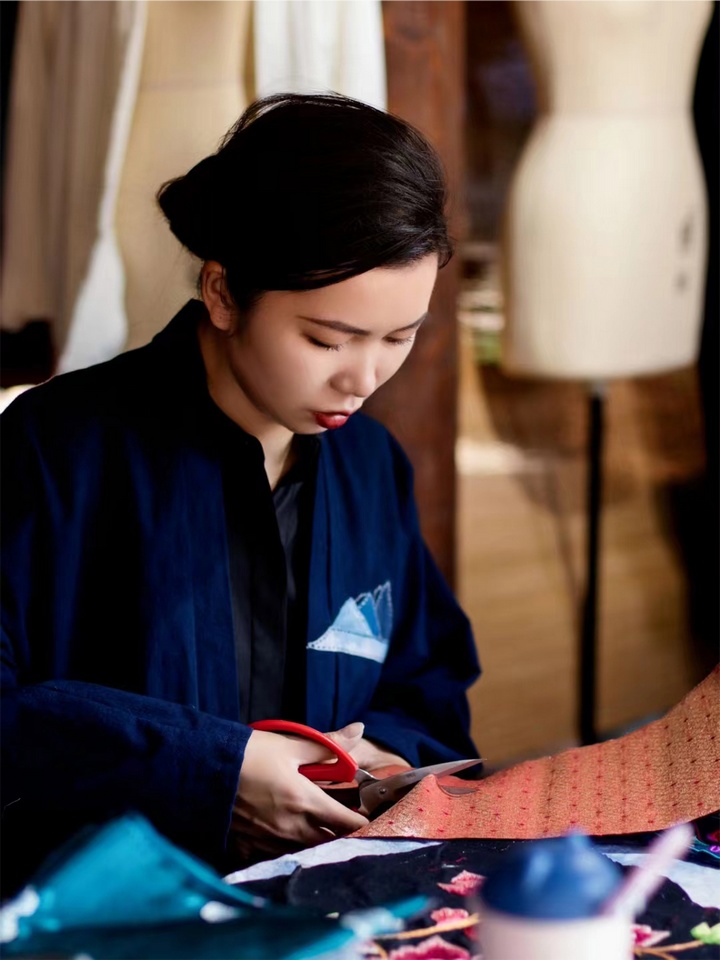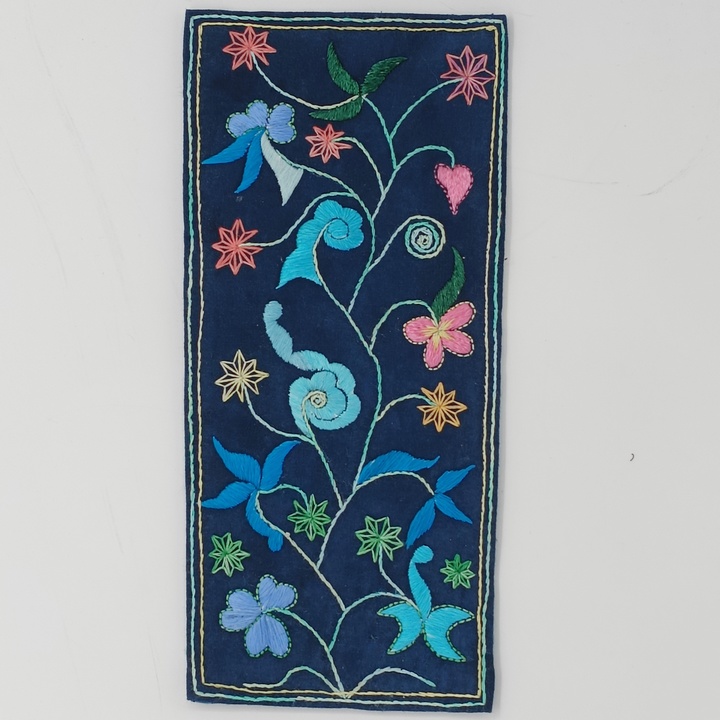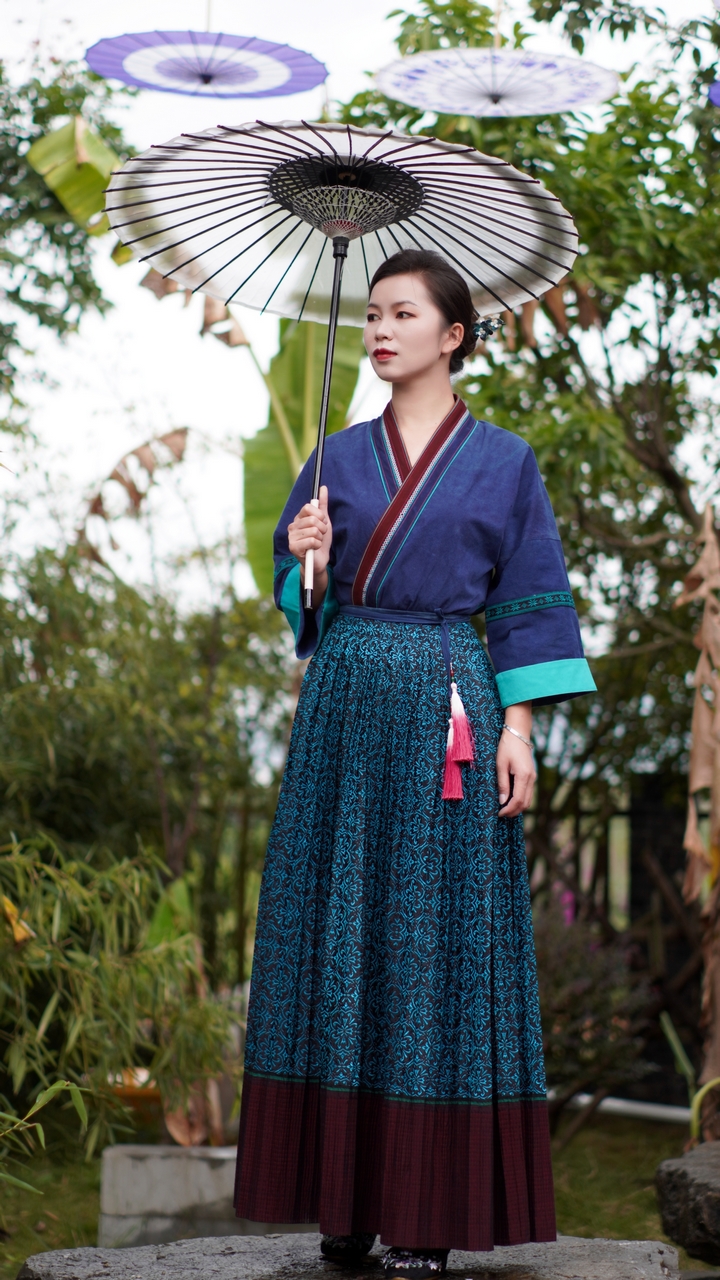Inheritor promotes costumes of Buyi ethnic group in SW China's Guizhou
Li Li, an inheritor of the intangible cultural heritage of costumes of the Buyi ethnic group in Qinglong county, southwest China's Guizhou Province, has played a vital role in carrying forward the techniques for making the Buyi costumes.

Li Li works on a handicraft piece. (Photo courtesy of Guizhou Provincial Department of Agriculture and Rural Affairs)
The Buyi people have had a traditional custom of weaving since ancient times, often expressing their life aspirations through weaving, embroidery, and other crafts.
As a Buyi woman, Li learned skills like wax painting and cloth dyeing from her mother from a young age. After accumulating rich experience in the techniques for making costumes of the Buyi ethnic group, she developed profound feelings for Buyi ethnic culture and a sense of mission to carry it forward.
"I hope that handicrafts like Buyi embroidery and dyeing will be passed on from generation to generation and be further developed through innovation," Li said.
When Li returned to Qinglong after working outside the county for several years, she had herself photographed wearing traditional costumes at a local famous destination. These photos proved a hit with many people, boosting Li's confidence in promoting Buyi ethnic culture.
In 2016, Li invested around 50,000 yuan ($6,920.9) to start her business, establishing a company and registering a trademark related to Buyi costumes. Three years later, she registered another company, dedicating herself to inheriting the intangible cultural heritage of Buyi ethnic costumes and the innovative development of Buyi ethnic culture.

Photo shows an embroidery work made by Li Li. (Photo courtesy of Guizhou Provincial Department of Agriculture and Rural Affairs)
Li has integrated Buyi ethnic elements including embroidery and dyeing into daily goods and cultural and creative products. In addition, she has combined the procedures of making traditional Buyi costumes and handicrafts with modern trends, injecting new vitality into the techniques for making traditional Buyi costumes.
In late 2019, Li returned to her hometown of Zitang village, Jichang township, Qinglong to hire veteran artisans, organize women of ethnic groups to learn hand-weaving, plant dyeing and other techniques for producing unique Buyi ethnic handicrafts, and develop more folk handicrafts, directly or indirectly creating jobs for over 200 people.
Li has also leveraged the internet to promote ethnic crafts. In July 2022, Li took the lead in building a cultural block featuring hand embroidery, ethnic costumes, ethnic handicrafts and intangible cultural heritage experience in a town in Qinglong county.
Today, the cultural block has areas for displaying ethnic costumes and experiencing handicrafts, as well as a training zone and a livestream zone, among other features. It has also introduced traditional costumes of Yi and Miao ethnic groups and combined online and offline sales, receiving plenty of orders and crowds of visitors.

Photo shows Li Li wearing ethnic costumes. (Photo courtesy of Guizhou Provincial Department of Agriculture and Rural Affairs)
Li said she has garnered more than 100,000 online followers. "We now have a livestream team, with team members sharing intangible cultural heritage items including batik, tie-dye, and embroidery to spread ethnic cultures," Li said.
What belongs to a nation also belongs to the world. "I hope one day I can bring embroiderers onto the international stage to let the whole world know about the many costumes of ethnic groups and intangible cultural heritage items in Qinglong," Li noted.
Photos
Copyright © 2024 People's Daily Online. All Rights Reserved.









